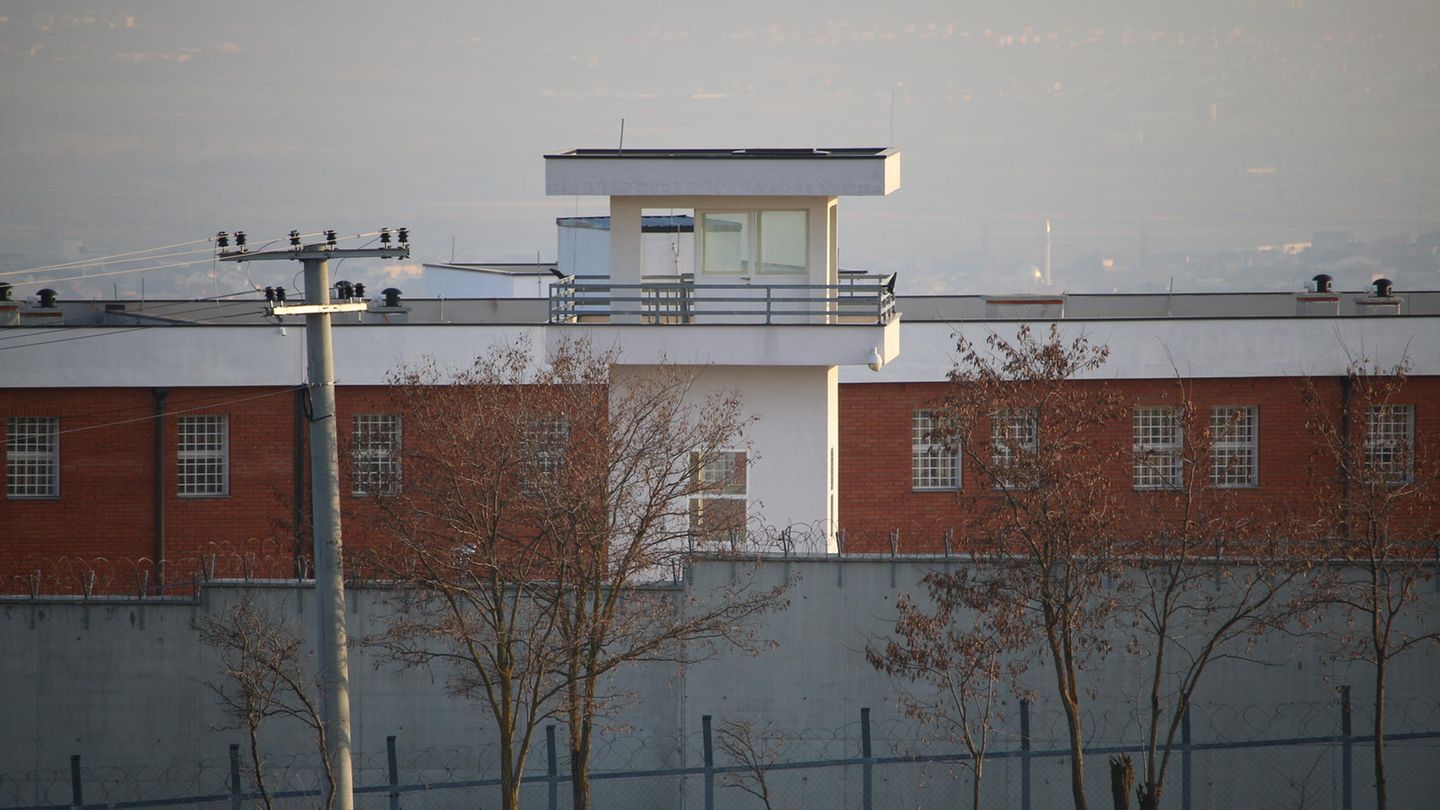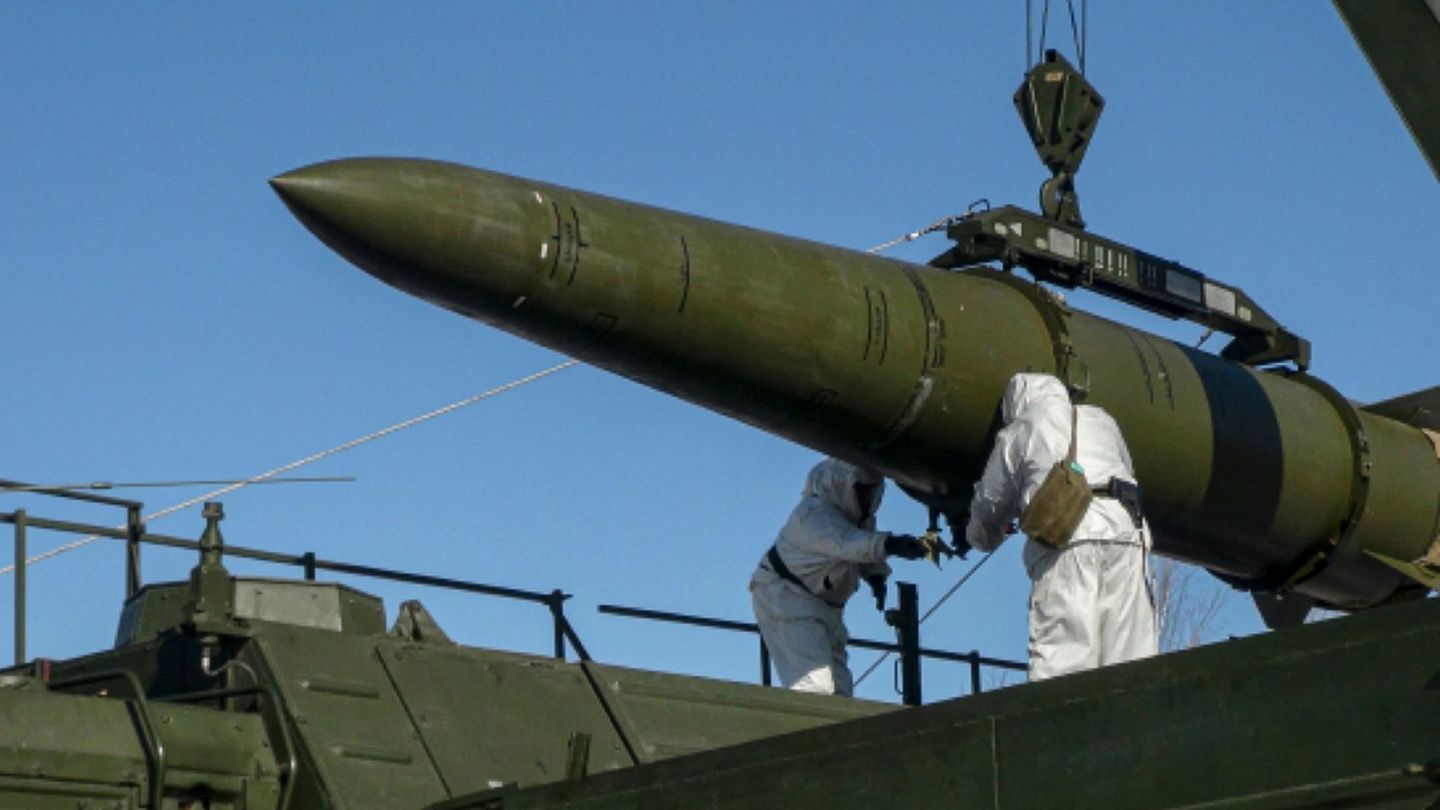An agreement stipulates that Denmark will rent 300 prison spaces in Kosovo to accommodate prisoners who are to be deported. But the deal has a bad aftertaste.
For a moment, it looked as if the agreement would fail. Years of negotiations between Denmark and Kosovo threatened to have been in vain and the Danish government’s plan to house prisoners in Kosovo seemed to be falling apart.
The Kosovo parliament finally passed the agreement – after months of uncertainty as to whether it would even come into effect. 86 MPs voted in favor and seven against. The Danish parliament had previously approved it.
The agreement, which was already agreed in 2022, had been stuck in the Kosovar parliament for some time. The opposition in the Balkan state had blocked the ratification of all international agreements as long as there were no new elections. A two-thirds majority was required for the adoption of such agreements.
300 prisoners for Kosovo – and many millions of euros
: The deal failed due to the opposition’s blockade in parliament and the government wanted to revise the agreement with the Danish side. A few days later, the Kosovo government presented the MPs with exactly the same draft law, as Deputy Minister of Justice Blerim Sallahu explained. This version is now in force and will initially apply for five years, with the possibility of extension.
This envisages Denmark renting 300 prison places in the Gjilan prison in the southeast of the country. Up to 300 foreigners sentenced to deportation will be able to serve their Danish prison sentences there under conditions that are essentially the same as those in Danish prisons. The prison will be converted for this purpose. In return, the Kosovar state will receive more than 200 million euros. The prison should be ready for occupancy in about two years. A start in 2023 was originally planned. There are currently around 200 prisoners in the Gjilan prison. They are to be transferred.
165 hectares in size
Space for 40,000 inmates: This is El Salvador’s new mega-prison
According to the agreement, prisoners convicted of terrorism and war crimes, as well as mentally ill prisoners, will not be transferred to Kosovo. The model of letting criminals serve their sentences abroad is not new – Norway and Belgium had previously rented prison cells in the Netherlands.
The prisons in Denmark are full
The reason for the Danish-Kosovo agreement is the overloading of Danish prisons. “This is crucial for us to secure more Danish prison places and will help to rebalance our heavily strained prison system,” said Denmark’s Justice Minister Peter Hummelgaard.
The number of prisoners in Denmark has increased by almost 20 percent since 2015 to more than 4,000 at the beginning of 2021 – according to official figures, prisons are now more than 100 percent full. During the same period, the number of prison guards has fallen by 18 percent and various penal laws have been tightened.
“At the same time, it sends a clear signal to criminal foreigners that their future does not lie in Denmark and that they should therefore not serve their sentence here,” Hummelgaard continued. The agreement provides that criminals sentenced to deportation can be sent directly from Kosovo to their home countries. It is a signal of toughness from the government.
Largest death row in the USA: Visiting “Death Row” in California’s San Quentin Prison
03:49 min
Concern about prisoners’ rights
However, the deal has been criticized from many sides. Hykmete Bajrami, an opposition politician in Kosovo, wrote on Facebook: “Agreeing to this agreement is a mistake and we should not turn Kosovo into a place where prisoners are taken.”
The Danish government has expressed concerns and called on Denmark to abandon its prison plans. The Danish Institute Against Torture (Dignity) has also expressed concern. Even if the prison is rebuilt to meet Danish standards, there are several aspects of the agreement that give cause for concern, said Therese Rytter, legal director of the institute. Among other things, there are human rights issues, as physical abuse is “part of the prison culture in Kosovo.”
“We have received very credible complaints of physical abuse, such as being hit and kicked while handcuffed.”
In addition, such incidents are not investigated by the Danish police, but by the Kosovar police. “There is therefore a risk that there will be no consequences for prison guards who commit crimes,” said Rytter. Justice Minister Hummelgaard does not share these concerns, however, pointing out that the prison will be under Danish management and Kosovar prison guards will be trained.
It is also unclear whether the agreement will actually have an effect. The Danish prison officers’ union certainly does not believe it will. “Of course, the occupancy rate will drop a little as a result,” chairman Bo Yde Sørensen told . “On the other hand, the focus over the last ten years has been on making the penalties tougher. (…) I find it hard to imagine that Denmark will have fewer prisoners if we send 300 to Kosovo.”
Sources: News agencies AFP and , , , , , , , ,
Source: Stern
I have been working in the news industry for over 6 years, first as a reporter and now as an editor. I have covered politics extensively, and my work has appeared in major newspapers and online news outlets around the world. In addition to my writing, I also contribute regularly to 24 Hours World.




